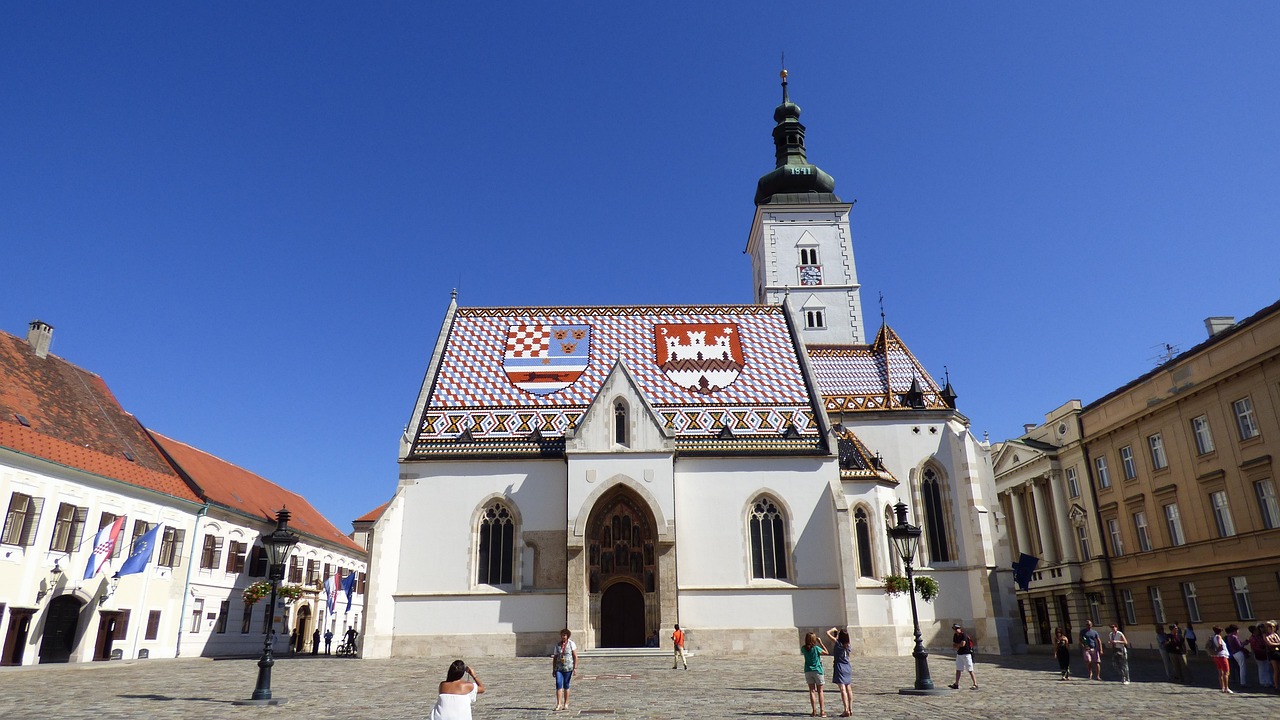Challenges of Preserving Croatian Identity in the Context of Mass Migration
During the major refugee and migrant crisis in 2015, arguments were often heard in Croatian media and political circles that no one wanted to stay in Croatia. Croatia was portrayed solely as a transit country through which everyone would leave for Germany or other wealthier countries.
However, some voices predicted that Croatia would face a labor shortage in the future. In 2018, Davorko Vidović, an advisor to the Croatian Chamber of Commerce, said that importing workers from distant destinations such as Pakistan, Bangladesh, and the Middle East was likely. That same year, the governor of the Croatian National Bank, Boris Vujčić, forecasted that Croatia would need 500,000 foreign workers to maintain economic growth.
These numbers are slowly becoming a reality. From 2013 to 2016, around 10,000 people immigrated to Croatia annually, and the first significant increase occurred in 2018. Today, Croatia has around 200,000 foreign workers, mostly in low-skilled jobs. This rapid influx of foreign workers was enabled by the new liberal Foreigners Act of 2020, which abolished any quotas on the number of foreign workers. Some Croatian demographers warned that long-term demographic changes could be harmful to Croatia.
Employers, who were previously unwilling to offer higher wages to local workers, are now employing foreign workers in large numbers, primarily driven by profit interests and lower labor costs. While this is understandable from a business perspective, there is a long-term risk that some of these workers may become dependent on Croatia’s social welfare system. Additionally, these migrations bring certain social changes that need to be carefully considered.
The number of foreign workers is roughly equivalent to the number of Croats who emigrated over the past decade. The question arises: is this in Croatia’s best interest? Global policies support such changes, but they are not fully aligned with the long-term goals of Croatia’s national identity. Croatia is historically the country of the Croatian people, and although there are no objections to workers from Nepal or the Philippines, it is important to preserve its unique character, just as Nepal remains the homeland of the Nepalese people.
Croatia as a New Hub for Migration in Europe?
Migration has always existed and will continue to do so, but what we are dealing with here is mass migration. This type of migration has fundamentally changed the ethnic structure of the population in many European countries. For example, if current trends continue, Swedes will become a minority in their own country within the lifetime of most people alive today. The same threat looms over France and, in the long term, many other countries. Instead of treating foreign workers in Croatia as a temporary workforce, current policies encourage family reunification and their immigration to Croatia.
In recent years, Croatia has also become a destination for an increasing number of illegal migrants. Last year alone, about 68,500 migrants entered Croatia illegally. Many of them received so-called temporary protection, after which they can move freely around Croatia without supervision. For most of them, it is impossible to establish their real identity since many have forged documents, or none at all.
All these illegal migrants are initially registered in Croatia, which means that if Europe were to implement deportation policies tomorrow, they could be sent back to Croatia. Is it in Croatia’s interest to become a so-called hot spot for migrants? Croatian police previously guarded the borders well, but after a series of international pressures, primarily from civil sector “humanitarian” organizations and “human rights” groups, the policy has apparently decided to make the borders more porous. Any mention of using the military to guard the borders is dismissed as extreme right-wing nonsense.
The Return of Croats: The Key to Croatia’s Demographic Renewal
The fact that Croatia might become a hot spot is evidenced by secret flights to Franjo Tuđman Airport, which are not recorded on the arrival screens. These flights transport migrants secretly from Switzerland to Croatia. These are migrants who were first registered in the Republic of Croatia. Who are the ruling political elites hiding these flights from? On whose behalf and for whose benefit have they agreed to turn Croatia into a European hot spot?
Are the ruling elites listening to the people? Around 70% of citizens in Croatia notice the growing presence of foreigners in their communities, and this sentiment is shared across all demographics, regardless of age or education level. Furthermore, 50% of them believe that migrants pose a threat to Croatian culture and way of life. Only 23.6% of citizens support the arrival of migrants.
Instead of following the approaches of other European countries, which have led to significant cultural changes, Croatia, as an emigrant country, could focus more on its diaspora and expatriates. This would encourage the return of Croats and strengthen ties with those who have left the homeland and who can contribute to the country’s development.
In just over ten years, Croatia has lost half a million people. A rational and strategic policy would first seek to bring those people back to Croatia. Additionally, many Croats live in Australia and South America. In recent years, South American Croats have led in terms of immigration to Croatia. The worsening economic situation in South America, particularly in Argentina, could encourage the descendants of Croats who emigrated several generations ago to return to Croatia. Research by Dekra Arbeit Croatia shows that about 35% of them want to return. Unfortunately, it is easier for a foreign worker to come to Croatia than for the descendants of Croats to obtain citizenship.
Croatia must stop implementing globalist policies and turn toward sovereignist ones. The continuation of the policies pursued in the last five years will lead to the destruction of Croatian identity and the Croatian state.
